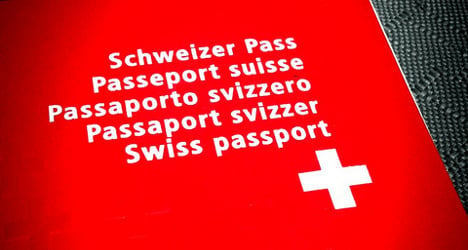The teenagers’ father – an imam at a Basel mosque – placed an application in January, authorities in the canton of Basel-country confirmed to the Basler Zeitung newspaper.
The two schoolboys, aged 14 and 15, from Therwil in Basel-country, caused outrage in Switzerland last month when they said they did not want to shake their female teachers’ hands because to do so went against Islam, which prohibits physical contact with the opposite sex aside from immediate family.
Seeking a compromise with the students but wanting to avoid discriminating female teachers, their school took the decision to exempt the boys from shaking any teacher’s hand.
The decision was seen as an affront to Swiss customs and caused consternation across the country, with Justice Minister Simonetta Sommaruga insisting that “shaking hands is part of our culture”.
The news that the family has applied to be Swiss has raised hackles further, with Christian Democract politician Christine Gorrengourt telling Basler Zeitung: “Those who refuse to shake hands with a woman cannot be naturalized.”
Georges Thüring, Swiss People’s Party member and the president of the commission that oversees citizenship applications in the district, agreed.
“I don’t think we can speak about integration when they refuse to shake hands,” he told the paper.
“Personally, I would reject the request,” he said, but added that the application would be duly considered like any other.
According to Basler Zeitung the 54-year-old father of the two schoolboys arrived from Syria in 2001 and was granted asylum as a political refugee, before eventually obtaining a permanent residence permit.
Applying for Swiss citizenship can be a long and expensive process.
Applicants must prove they are well integrated in Swiss society, including speaking a national language, being familiar with Swiss customs and complying with Swiss law.
Those who pass federal requirements for citizenship are then subject to examination by cantonal and communal authorities, who may refuse naturalization.
In 2014 an American expat who had lived in Switzerland for 43 years had his citizenship request rejected on the grounds he wasn't integrated enough.




 Please whitelist us to continue reading.
Please whitelist us to continue reading.